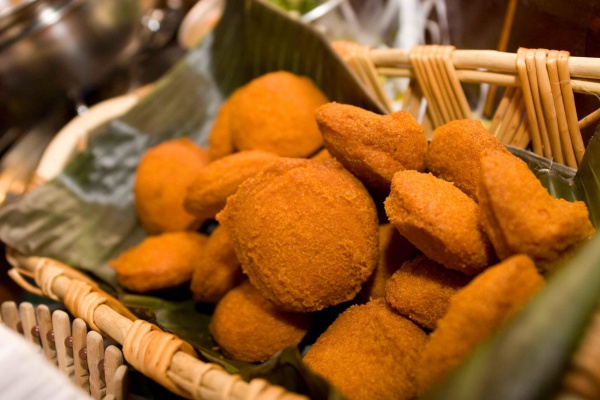Facts About Acarajé
Akara, also known as Kosai in Hausa and Acarajé in Portuguese, is a cherished fritter made from cowpeas, integral to both West African and Brazilian cuisines. In Brazil, it enjoys particular popularity in Bahia, especially in Salvador. Acarajé holds dual importance as both a religious offering in the Candomblé faith and as a beloved street food. This dish was introduced to Brazil by enslaved people from West Africa, and it remains popular in countries such as Nigeria, Ghana, Togo, Benin, Mali, Gambia, and Sierra Leone.
To make Acarajé, cooked and mashed cowpeas are seasoned with salt and onions, formed into large scone-shaped patties, and deep-fried in dendê oil. Typically, it is served split in half and filled with vatapá and caruru, two spicy pastes made with shrimp, cashews, and palm oil. There is also a vegetarian version incorporating hot peppers and green tomatoes. A variation known as abara involves boiling the ingredients instead of frying them.
The word "Akara" broadly translates to "bread" or "pastry." The Brazilian term "Acarajé" likely originates from Yoruba words meaning "bread and food" or "round pastry to eat." In Yoruba culture, Akara has historical significance and is often featured in celebrations or as a breakfast dish in Nigeria and Sierra Leone. In Brazil, sellers of Acarajé, known as baianas, played key roles in the fight against slavery and remain significant cultural figures in Bahia.
Acarajé is deeply embedded in Afro-Brazilian religious traditions such as Candomblé, where it is used in rituals honoring various deities. Specific types of Acarajé are dedicated to different orixás, such as Acarajé de azeite-doce and Acarajé de Xangô. In 2004, Acarajé was recognized as a federal immaterial cultural heritage asset in Brazil, acknowledging not only the dish but also the baianas who prepare and sell it.

 Togo
Togo